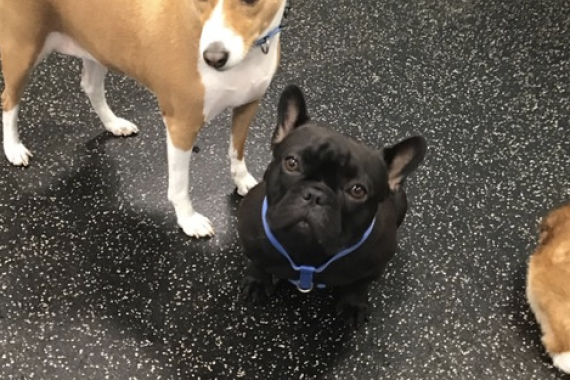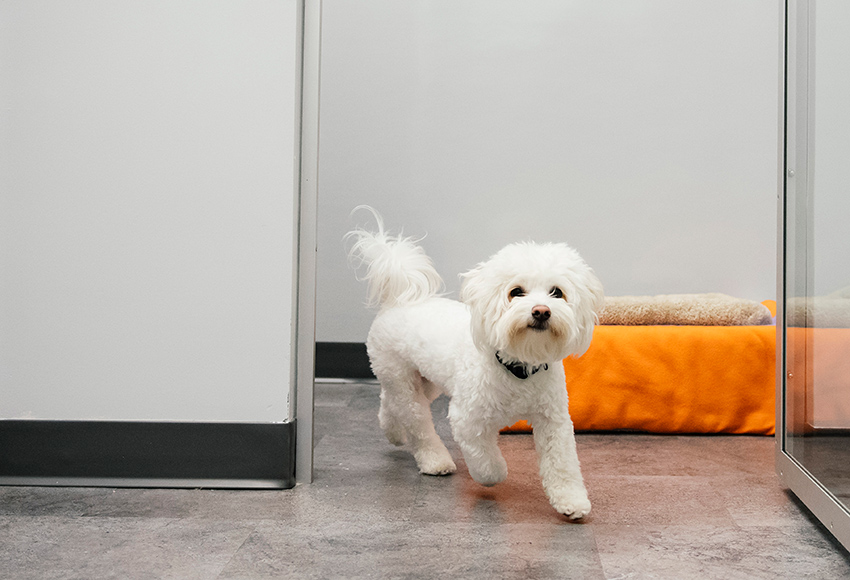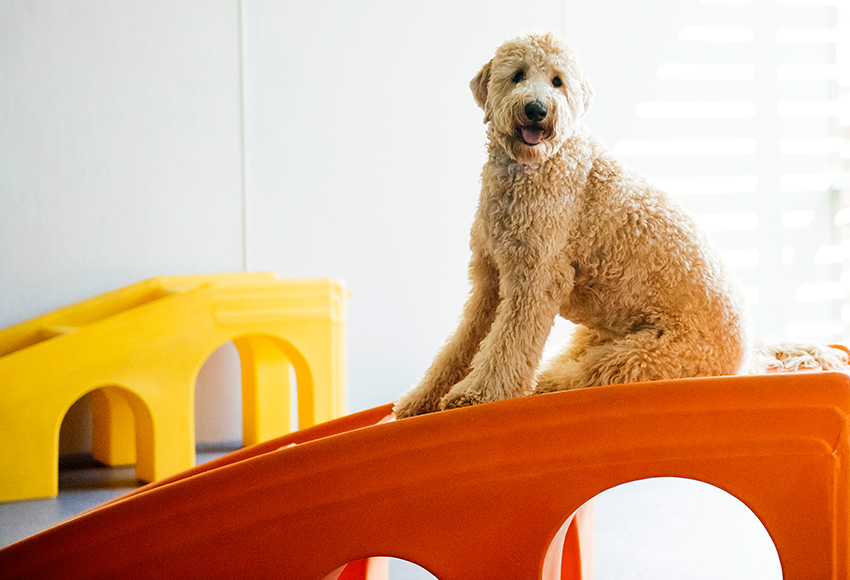Mysteries of Dog Open-Play Solved
April 5, 2018


Domestic dogs don’t outgrow play (especially open-play). They are in an “enduring suspended juvenile frame of mind.” They don’t outgrow it, rather they pursue it throughout their lives. Unhealthy and unhappy dogs do not play so it’s a good barometer to see if your dog is healthy and comfortable. Open-play is one of the most important behaviors your dog can participate in.
What we see with dogs in play is that they use very complex behaviors that are akin to what people do. When a person teases someone they say one thing verbally but then smile to show it’s all a game. This “meta-communication” is also a big part of dog play. If a dog is playing and gets a little rough with a bite that’s a little aggressive they may add a head shake in to say, “I’m still playing.” This is important because they are going out of their way to make sure they are communicating properly before an issue might escalate.
Play fighting is the primary method used to negotiate new relationships and develop lasting friendships. This language is really vital to dogs and letting those play experiences happen is also equally important. Breaking up a “fight” (when it is truly balanced natural play) is sort of like having someone tell you something that is near and dear to your heart and you interrupt them in the middle to ask for a cup of coffee. It kills the mood!
Balanced OPEN PLAY
We really do emphasize balanced play with dogs. A true 50/50 rule about who’s “attacking” and who’s defending. However, taking turns is never this way. In some cases, you get play where dogs specifically seek out partners who are consistently assertive with them. It’s sort of like picking someone to play with that will beat you every time but you do it because you like the challenge and it makes you better than easily “beating” your play partner.
Barbara Smuts PhD and Camille Ward PhD posted an article in 2011 that has a great paragraph worth citing: Sometimes people interrupt these interactions because they fear that rough play will escalate into an all-out dogfight. However, in hundreds of hours of observations of play fighting between two dogs with established relationships, we have never witnessed a single escalation to real fighting. One of the authors hosted six to eight neighborhood dogs in her backyard every day for nine years, including two female German Shepherds, a male Husky, a male Husky mix and three mixed-breeds. Their play included all of the traditional “no-no’s” mentioned previously, but no dog ever received so much as a scratch. Other scientists report similar findings. The Hungarian ethologist Vilmos Csányi writes, “In some Hungarian animal rescue organizations, more than a hundred dogs … coexist peacefully.” (V. Csányi. 2000. If Dogs Could Talk: Exploring the Canine Mind. New York: North Point Press.) You can view the whole article at: https://thebark.com/content/your-dogs-rough-play-appropriate
dogs choose their play partners
It’s also important to remember, dogs in open play CHOOSE who they play with. If they don’t like a behavior or they aren’t happy with the way the “conversation” is going they just move on. Just like a dinner party with humans, they choose their company. Better yet, they aren’t forced to stand and listen to the spouses’ boss out of a larger concern. They just play or walk away any time and every time at their own discretion.
One of the challenges with understanding dog behavior is that we don’t really spend a ton of time actually looking at the information. There’s tons of studies and research covering almost anything you want to know about dogs but in our busy lives we just don’t find the time to consume it. We encourage you to explore more about why your dog behaves the way they do.
Dog Daycare is a great way to get your dog the social engagement they need: http://www.dogtopia.com/edmond/dog-daycare







